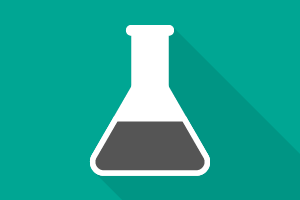Classroom Resources: Reactions & Stoichiometry
Filter by:
76 – 82 of 82 Classroom Resources
-

Chemical Change, Classification of Reactions, Oxidation, Reduction, Redox Reaction, Electrons, Electron Transfer, Ions, Observations, Inferences, Chemical Change | Middle School
Lesson Plan: One Tube Reaction Mark as Favorite (3 Favorites)
In this lesson, students will observe a chemical change involving oxidation and reduction.
-

Chemical Change, Gas Laws | High School
Project: Air Bag Stoichiometry Mark as Favorite (34 Favorites)
In this lab, students make real-world connections of stoichiometry with the design of car air bags.
-

Oxidation, Chemical Change, Oxidation, Reduction, Redox Reaction, Electrons, Electron Transfer | Middle School
Lesson Plan: Old Rusty Mark as Favorite (1 Favorite)
In this lesson, students will explore the concept of oxidation of metals by creating designs on fabric or paper using rusty objects.
-

Chemical Change, Observations, Exothermic & Endothermic, Temperature, Chemical Change | High School
Lab: Observing a Chemical Reaction Mark as Favorite (4 Favorites)
In this lab, students will practice making careful observations and measurements while witnessing a chemical change.
-

Chemical Change, Chemical Change, Observations, Acid, Chemical Change | Elementary School
Lab: My Pennies Mark as Favorite (2 Favorites)
In this lab, students will investigate how an acidic, vinegar based solution can help to get “dirty” pennies clean. Students will observe chemical change and investigate real-world connections to this lab.
-

Chemical Change, Combustion, Balancing Equations | High School
Demonstration: Methane Bubble (Dragon Ball Z) Mark as Favorite (2 Favorites)
In this demonstration, students will observe the combustion of methane using hands-on practices.
-

Chemical Change, Observations, Mixture, Acids & Bases, Chemical Change | Elementary School, Middle School, High School
Demonstration: Inflating a Balloon with Chemistry Mark as Favorite (4 Favorites)
In this demonstration, the teacher will perform a reaction between acetic acid (vinegar) and sodium bicarbonate (baking soda) in order to inflate a balloon and to introduce the concept of a chemical reaction to students. Students will observe the reaction, and identify indicators of chemical change as well as discuss the different types of matter that are involved.